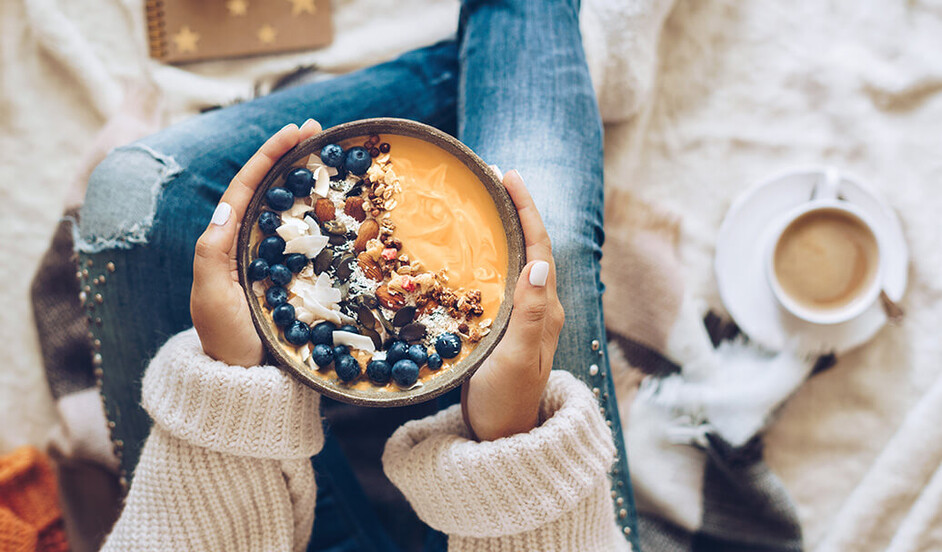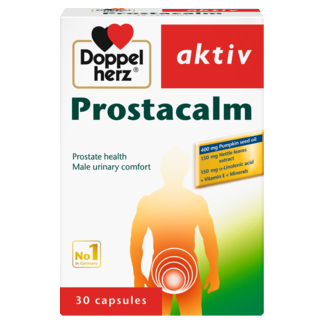Kidney, bladder & prostate

Products for kidney, bladder & prostate
 Doppelherz aktivProstacalmFood supplement
Doppelherz aktivProstacalmFood supplement Doppelherz aktivUrocalmFood supplement
Doppelherz aktivUrocalmFood supplement
Bladder weakness - strengthen your bladder
very embarrassing to the person concerned and is rarely discussed.
By the same token, bladder weakness is not an inevitable fate, but rather a condition that can be significantly improved in most cases. People affected should, therefore, turn to their physician for advice. Don't worry, bladder weakness is widespread among people of all ages, women and men alike, a familiar concern to urologists and gynecologists and by no means embarrassing.
How the bladder works
Our kidneys filter waste substances from the blood that are excreted in liquid form,
as urine. Urine is carried to the bladder via the ureter and discharged from there through the narrow urethra.
Whenever the bladder is filled and we feel an urge to urinate, this message is sent to the brain through the spinal cord. If urination is not desirable at the moment,
the brain sends a message to the bladder not to empty. Holding back the urine is now regulated by two ring muscles, the pelvic floor muscles and the nervous connection between brain and bladder. If we cannot hold back the urine, one of these functions is impaired.
Depending on the quantity they drink, adults excrete around 1.5 liters of urine each day. The bladder is like an expandable balloon with a maximum holding capacity of 800 ml on average. But the urge to urinate sets in at approximately 350 ml so that we need to empty the bladder 4 to 6 times daily.
Help for the bladder:
- Exercise your pelvic floor
- Avoid becoming overweight
- Train your bladder with fixed toilet times
- Avoid urinary tract infection
- Drink enough
- Avoid diuretic beverages with caffeine and carbonic acid
Reasons for bladder weakness
Involuntary urine leakage, or incontinence, can have many causes. Older people may not be able to reach the toilet in time as a result of a belated perception of the urge to urinate or because of restricted mobility. Especially during the night, incontinence may increase with diminishing cardiac function.
Hormonal influences or weakness of the pelvic floor often trigger bladder weakness, especially in women. Pregnancy can also have an impact on the bladder, as the growing uterus can exert pressure on the bladder. A frequent urge to urinate as well as unwanted loss of urine can be the result – but this type of bladder weakness is usually over after giving birth.
Men, of course, can also be affected by bladder weakness. Benign enlargement of the prostate caused by hormonal changes may occur particularly at a progressed age. An enlarged prostate can constrain the urethra, which makes it hard or even impossible to pass urine, or to empty the bladder completely.
Natural help from pumpkin seeds and saw palmetto
There is a long tradition of combining valuable phytonutrients. The saw palmetto (sabal) is a dwarf palm tree that grows up to four meters high and has brownish-black berries, sometimes oily. The ripe, dried fruits of the saw palmetto are also used in naturopathy.
The pumpkin belongs to the gourd family (Cucurbitaceae) and blossoms from June to September. Although native to North America, it is meanwhile grown around the world. The whitish flat seeds are concealed within the fruit. Pumpkin seeds, also known as pumpkin kernels, are cherished both in naturopathy and in a healthy diet.
Combinations of saw palmetto fruit (sabal) and high-quality medicinal pumpkin are used to strengthen the bladder and appreciated for their strengthening influence on dysfunctional urinary organs.
Sabal/pumpkin capsules, application: Traditional herbal medicine to strengthen and invigorate the bladder function exclusively based upon long-standing use.
Warning: Contains lactose and sucrose (sugar). Refer to the package leaflet for risks and side effects, and consult your doctor or pharmacist.
